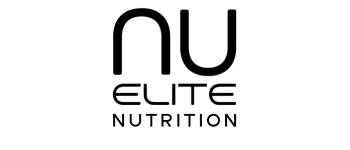If you’re a man over 40, chances are you’ve noticed changes in your body and energy levels. Maybe it’s harder to stay lean, your workouts don’t feel as powerful, or you find yourself dragging in the afternoons when you used to push through with ease. While aging plays a role, a major underlying factor could be declining testosterone levels.
Studies show that men lose about 1% of testosterone per year after age 40. That may not sound like much, but over a decade, that’s a 10% decline — enough to create real changes in mood, performance, and health. The good news? This decline doesn’t have to define you. With the right approach, you can support healthy testosterone levels and feel strong, sharp, and balanced well into your 40s, 50s, and beyond.
In this article, we’ll break down:
-
Why testosterone matters for men’s health
-
The science behind the age-related decline
-
Common symptoms to watch for
-
Lifestyle and nutrition strategies to slow the drop
-
How supplements can help you fight back naturally
Why Testosterone Matters
Testosterone is often thought of only as the “sex hormone,” but its role is far more wide-reaching. It is a vital hormone for men’s overall health and vitality. Here’s what it supports:
-
Muscle growth & strength – Testosterone helps maintain lean muscle mass and gives you the ability to build strength through training.
-
Bone density – Lower testosterone can increase risk of fractures and osteoporosis.
-
Energy levels – Healthy T levels contribute to stamina and resilience throughout the day.
-
Mood & confidence – Declining testosterone is linked to irritability, lower motivation, and even depression.
-
Cognitive function – Testosterone plays a role in memory, focus, and mental sharpness.
-
Sexual health – Libido and performance are closely tied to testosterone.
In short: testosterone is the foundation of male vitality. When levels dip, nearly every area of life can feel the impact.
Why Does Testosterone Decline After 40?
There are several reasons testosterone begins to taper off as men get older:
-
Natural biological aging – The Leydig cells in the testes, which produce testosterone, become less efficient with age.
-
Hormonal changes – The body gradually produces more sex hormone binding globulin (SHBG), which binds to testosterone and makes less of it available for use.
-
Lifestyle factors – Poor diet, lack of exercise, stress, and inadequate sleep accelerate the decline.
-
Body fat increases – Higher fat levels (especially belly fat) promote the conversion of testosterone into estrogen, further reducing free T.
-
Environmental factors – Exposure to endocrine-disrupting chemicals (plastics, toxins, pesticides) can interfere with hormone production.
The end result? A steady yearly decrease of ~1% that compounds over time. By age 50, many men are 10–20% below their peak, and symptoms become noticeable.
Signs Your Testosterone May Be Low
Testosterone decline doesn’t happen overnight. It’s gradual, and many men chalk it up to “just getting older.” But if you notice several of these signs, it may be low testosterone at play:
-
Fatigue and lower daily energy
-
Difficulty gaining or maintaining muscle
-
Increased belly fat
-
Reduced strength and endurance in the gym
-
Decreased libido or performance concerns
-
Mood swings, irritability, or “brain fog”
-
Trouble sleeping
-
Slower recovery from exercise
If these feel familiar, you’re not alone — millions of men in their 40s and beyond deal with the same challenges. The key is recognizing it and making changes.
How to Support Healthy Testosterone Naturally
While you can’t stop time, you can take action to slow testosterone decline and even optimize levels naturally. Here are science-backed strategies:
1. Prioritize Strength Training
Lifting weights (especially compound movements like squats, deadlifts, and presses) stimulates testosterone production. Aim for 3–4 sessions per week, focusing on progressive overload.
2. Optimize Nutrition
Certain nutrients are directly tied to testosterone health:
-
Zinc – Found in red meat, shellfish, and pumpkin seeds.
-
Vitamin D – Sun exposure + fatty fish or supplementation.
-
Magnesium – Leafy greens, nuts, whole grains.
-
Healthy fats – Avocados, olive oil, omega-3s support hormone production.
Avoid excessive sugar and processed foods, which drive fat gain and inflammation.
3. Sleep Like It’s Your Job
Most testosterone is produced while you sleep. Aim for 7–9 hours per night, with consistent bed and wake times. Poor sleep can slash T levels by up to 15% in just a week.
4. Manage Stress
Chronic stress raises cortisol, a hormone that directly suppresses testosterone. Incorporate relaxation practices like walking, deep breathing, meditation, or simply unplugging from screens.
5. Maintain a Healthy Weight
Even a 10% reduction in body fat can lead to a measurable increase in testosterone. Focus on sustainable fat loss through balanced diet + activity.
The Role of Supplements
Even with the best lifestyle habits, modern life makes it difficult to cover every base. Nutritional gaps, stress, and environmental factors can all contribute to suboptimal testosterone. That’s where supplements come in.
A quality testosterone support supplement can:
-
Provide clinically dosed ingredients that are often missing from diet alone.
-
Support energy, mood, and recovery.
-
Give you a natural, safe alternative to synthetic hormone replacement.
The key is choosing a formula that’s transparent, properly dosed, and made in FDA-registered facilities — not one of the underpowered “test boosters” you’ll find in gas stations or discount stores.
At Nu Elite Nutrition, we created Alpha-X with exactly that in mind: a premium men’s vitality supplement designed for men 40+ who want to feel stronger, sharper, and more balanced every day.
Final Thoughts
Testosterone decline after 40 is normal, but it doesn’t have to be inevitable. By combining smart lifestyle habits with targeted nutritional support, you can keep your energy, performance, and drive at their peak.
Don’t accept fatigue, muscle loss, or low motivation as “just part of aging.” You deserve better — and with the right approach, you can take control of your health.



Leave a comment
This site is protected by hCaptcha and the hCaptcha Privacy Policy and Terms of Service apply.